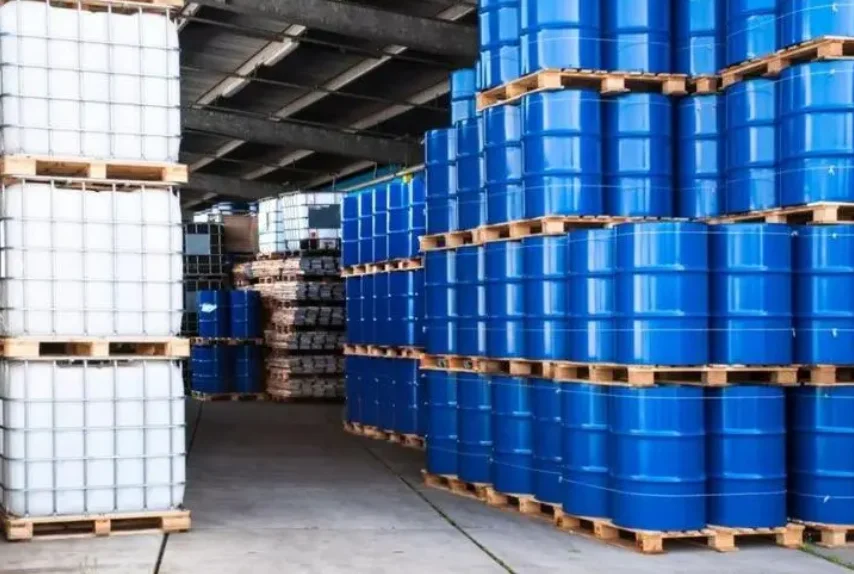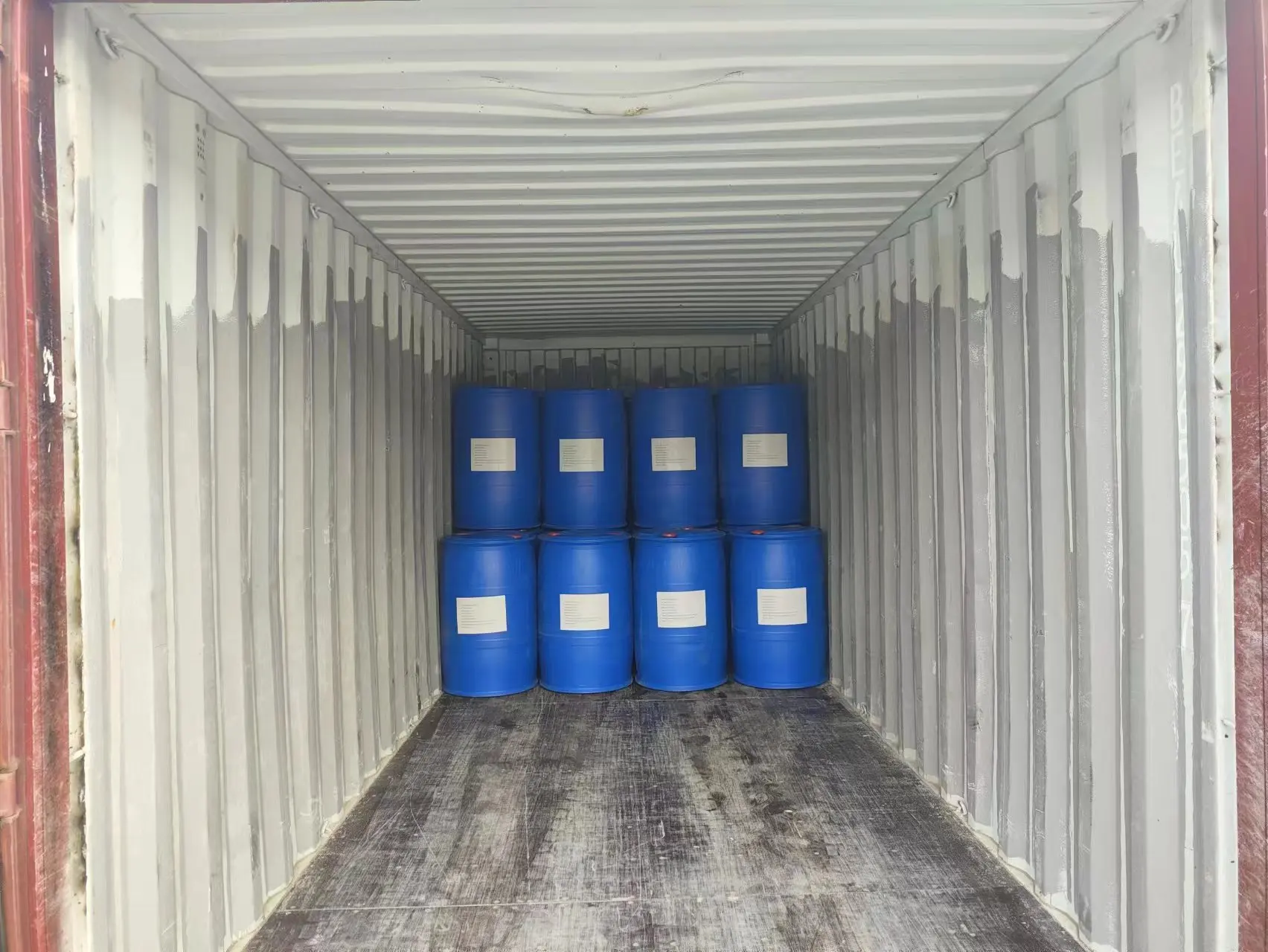Email : zhou@sinobiochemistry.com Phone : +86-13941198570


| Availability: | |
|---|---|
| Quantity: | |
DEG CAS111-46-6
SINOBIO
2909410000
Name: Diethylene glycol (DEG)
Chemical formula: C₄H₁₀O₃
Molecular weight: 106.12
CAS: 111-46-6
EINECS: 203-872-2
Alias: diethylene glycol, 2,2'-oxydiethanol, dihydroxydiethyl ether, etc.
Physical properties
Appearance: colorless, odorless, transparent, hygroscopic viscous liquid
Smell: spicy sweet
Melting point: -10.5℃ (some say -6.5℃ or -8℃)
Boiling point: 245℃
Relative density: 1.118g/mL (4℃)
Flash point: 143℃ (closed cup), some say 123.9℃ or 124℃
Solubility: miscible with water, ethanol, ethylene glycol, acetone, chloroform, furfural, etc., immiscible with ether, carbon tetrachloride, carbon disulfide, straight-chain aliphatic hydrocarbons, aromatic hydrocarbons, etc.
Diethylene glycol, beyond its direct applications as a solvent and related roles, boasts a range of extended uses across multiple industries.
In the field of chemical synthesis, it serves as a key raw material for producing certain resins, such as unsaturated polyester resins, which are widely used in manufacturing fiberglass products, coatings, and adhesives. Its chemical properties enable it to participate in polymerization reactions, contributing to the formation of polymer chains with specific characteristics.
Within the textile industry, aside from acting as a lubricant and softener, it aids in improving the dyeing performance of fabrics. It can enhance the solubility and stability of dyes, ensuring more uniform and vivid coloration during the dyeing process, thereby提升 the overall quality of textile products.
In the realm of cosmetics and personal care, diethylene glycol finds application as a humectant in some formulations. It helps retain moisture in products like creams, lotions, and hair care items, preventing them from drying out and maintaining their texture and efficacy over time.
Additionally, in the petroleum industry, it is utilized in natural gas dehydration. Its strong hygroscopicity allows it to absorb water vapor from natural gas, ensuring the gas meets the required dryness standards for transportation and processing, which is crucial for preventing pipeline corrosion and ensuring efficient operation.
| Item | value |
| Classification | Alcohol |
| CAS No. | 111-46-6 |
| Other Names | DEG |
| MF | C4H10O3 |
| EINECS No. | 203-872-2 |
| Place of Origin | China |
| Grade Standard | Industrial Grade, Reagent Grade |
| Purity | 99.5% |
| Appearance | Colorless transparent liquid |
| Application | Gas dehydrating agen |
| Model Number | Diethylene Glycol |
| Molecular Weight | 106.12 |
| Water Soluble | Miscible with water |
| HS Code | 2909410000 |
DEG has a wide range of applications across multiple industrial sectors, primarily including:
1. Solvent: Used as a solvent for nitrocellulose, resins, oils, printing inks, and other materials.
2. Gas dehydrating agent: Used as a dehydrating agent in processes such as natural gas dehydration.
3. Aromatic hydrocarbon extraction solvent: Used to extract aromatic hydrocarbons such as coumarone and indene from coal tar.
4. Textile treatment agent: Used as a softener and finishing agent for textiles to improve their performance.
5. Other applications: Also used as a brake fluid additive, cellulose softener, antifreeze, and diluent in emulsion polymerization. Additionally, it is applied in the production of rubber and resin plasticizers, polyester resins, fiberglass, urethane foams, and lubricant viscosity improvers.
Diethylene Glycol (DEG) is an important organic compound and has a wide range of applications in multiple industrial fields, as follows:
*Solvent: DEG can be used as a solvent for nitrocellulose, resins, grease, printing ink, etc., to help dissolve and disperse these substances and improve processing performance.
*Gas dehydrating agent: In processes such as natural gas dehydration, DEG is used as a dehydrating agent to effectively remove moisture from the gas and prevent corrosion of pipelines and equipment.
*Aromatic extraction solvent: DEG is used to extract aromatic compounds such as coumarone and indene from coal tar, and is an important raw material in chemical production.
*Other chemical applications: DEG is also used as a brake oil compound, celluloid softener, antifreeze agent, diluent during emulsion polymerization, etc. It is also used in the production of rubber and resin plasticizers, polyester resins, fiberglass, urethane foam, lubricant viscosity improvers and other products.
*Thickener and stabilizer: DEG can be used as a thickener and stabilizer in the confectionery industry to increase the viscosity and stability of the product to improve the taste and appearance.
*Dairy product production: DEG can also be used in the production of dairy products to improve the emulsification performance and maintain the stability and transparency of the emulsion.

Package
220kg/1000KG IBC drum, We provide customized package for different quantity.
We can make flexible package as clients‘ required. And always, we are providing in time vessel.



Name: Diethylene glycol (DEG)
Chemical formula: C₄H₁₀O₃
Molecular weight: 106.12
CAS: 111-46-6
EINECS: 203-872-2
Alias: diethylene glycol, 2,2'-oxydiethanol, dihydroxydiethyl ether, etc.
Physical properties
Appearance: colorless, odorless, transparent, hygroscopic viscous liquid
Smell: spicy sweet
Melting point: -10.5℃ (some say -6.5℃ or -8℃)
Boiling point: 245℃
Relative density: 1.118g/mL (4℃)
Flash point: 143℃ (closed cup), some say 123.9℃ or 124℃
Solubility: miscible with water, ethanol, ethylene glycol, acetone, chloroform, furfural, etc., immiscible with ether, carbon tetrachloride, carbon disulfide, straight-chain aliphatic hydrocarbons, aromatic hydrocarbons, etc.
Diethylene glycol, beyond its direct applications as a solvent and related roles, boasts a range of extended uses across multiple industries.
In the field of chemical synthesis, it serves as a key raw material for producing certain resins, such as unsaturated polyester resins, which are widely used in manufacturing fiberglass products, coatings, and adhesives. Its chemical properties enable it to participate in polymerization reactions, contributing to the formation of polymer chains with specific characteristics.
Within the textile industry, aside from acting as a lubricant and softener, it aids in improving the dyeing performance of fabrics. It can enhance the solubility and stability of dyes, ensuring more uniform and vivid coloration during the dyeing process, thereby提升 the overall quality of textile products.
In the realm of cosmetics and personal care, diethylene glycol finds application as a humectant in some formulations. It helps retain moisture in products like creams, lotions, and hair care items, preventing them from drying out and maintaining their texture and efficacy over time.
Additionally, in the petroleum industry, it is utilized in natural gas dehydration. Its strong hygroscopicity allows it to absorb water vapor from natural gas, ensuring the gas meets the required dryness standards for transportation and processing, which is crucial for preventing pipeline corrosion and ensuring efficient operation.
| Item | value |
| Classification | Alcohol |
| CAS No. | 111-46-6 |
| Other Names | DEG |
| MF | C4H10O3 |
| EINECS No. | 203-872-2 |
| Place of Origin | China |
| Grade Standard | Industrial Grade, Reagent Grade |
| Purity | 99.5% |
| Appearance | Colorless transparent liquid |
| Application | Gas dehydrating agen |
| Model Number | Diethylene Glycol |
| Molecular Weight | 106.12 |
| Water Soluble | Miscible with water |
| HS Code | 2909410000 |
DEG has a wide range of applications across multiple industrial sectors, primarily including:
1. Solvent: Used as a solvent for nitrocellulose, resins, oils, printing inks, and other materials.
2. Gas dehydrating agent: Used as a dehydrating agent in processes such as natural gas dehydration.
3. Aromatic hydrocarbon extraction solvent: Used to extract aromatic hydrocarbons such as coumarone and indene from coal tar.
4. Textile treatment agent: Used as a softener and finishing agent for textiles to improve their performance.
5. Other applications: Also used as a brake fluid additive, cellulose softener, antifreeze, and diluent in emulsion polymerization. Additionally, it is applied in the production of rubber and resin plasticizers, polyester resins, fiberglass, urethane foams, and lubricant viscosity improvers.
Diethylene Glycol (DEG) is an important organic compound and has a wide range of applications in multiple industrial fields, as follows:
*Solvent: DEG can be used as a solvent for nitrocellulose, resins, grease, printing ink, etc., to help dissolve and disperse these substances and improve processing performance.
*Gas dehydrating agent: In processes such as natural gas dehydration, DEG is used as a dehydrating agent to effectively remove moisture from the gas and prevent corrosion of pipelines and equipment.
*Aromatic extraction solvent: DEG is used to extract aromatic compounds such as coumarone and indene from coal tar, and is an important raw material in chemical production.
*Other chemical applications: DEG is also used as a brake oil compound, celluloid softener, antifreeze agent, diluent during emulsion polymerization, etc. It is also used in the production of rubber and resin plasticizers, polyester resins, fiberglass, urethane foam, lubricant viscosity improvers and other products.
*Thickener and stabilizer: DEG can be used as a thickener and stabilizer in the confectionery industry to increase the viscosity and stability of the product to improve the taste and appearance.
*Dairy product production: DEG can also be used in the production of dairy products to improve the emulsification performance and maintain the stability and transparency of the emulsion.

Package
220kg/1000KG IBC drum, We provide customized package for different quantity.
We can make flexible package as clients‘ required. And always, we are providing in time vessel.


